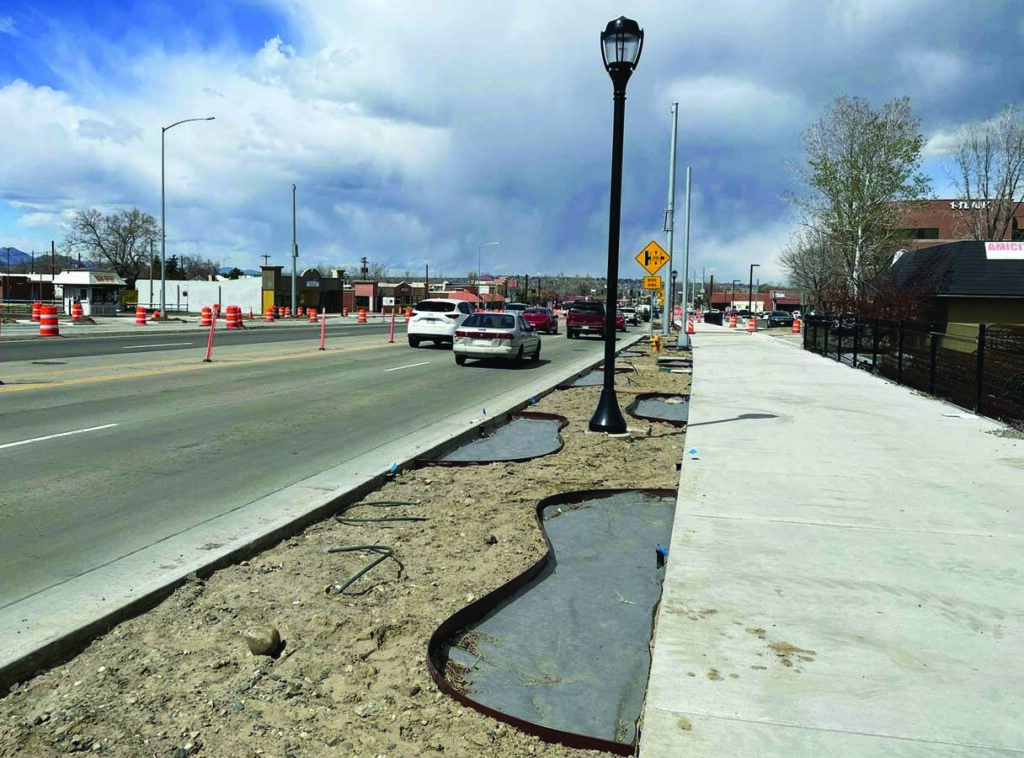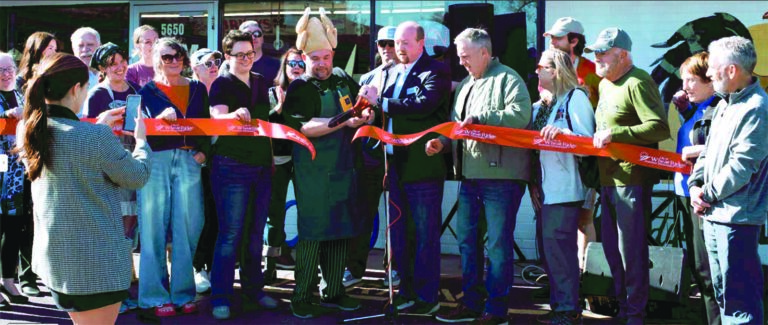Following last year’s voter-approved tax increase and bond issue ballot question, the Wheat Ridge City Council recently approved a $75 million increase in the city’s debt to pay for several improvement projects.
Memos to the council noted the debt will have a repayment cost of $125 million and a $7.7 million maximum annual repayment cost. A ½ cent sales and use tax hike — originally approved by voters in 2016 — that will pay for the projects is expected to generate approximately $5 million annually. It is due to expire on Dec. 31, 2028, or when $38.5 million is raised, whichever happens first. The city anticipates reaching that cap in early 2025.
The bonds are planned to be issued in two phases. The first issue of more than $33 million is to occur this fall and pay for approximately $32.4 million in project costs. The bonds will mature no later than Dec. 1, 2043.
The council’s approval of an ordinance calling for the bond issue came on 8-0 votes on Aug. 26 and Sept. 9, with a change made to the measure after the first vote: It was determined to be “prudent” for the city to include about $5 million of its approximately $7.3 million 2017 bond debt.
Nate Eckloff with the Piper Sandler public investment firm told the council the city should save around $100,000 by refinancing that portion of its 2017 bond issue due to lower interest rates. The 2024 bonds will likely have a 3.71% interest rate, he added.
“The rates might decline slightly by the time we price the bonds, but that’s already a very attractive rate given how far they’ve come down from last year,” Eckloff stated.
He anticipated closing on the sale of the first phase of the bond issue by the end of October.
The memos stated money from the ½ cent sales and use tax and another ½ cent of the city’s current sales tax would be pledged to the debt. The money will be tracked in a special account and limited to the debt service on the 2017 and 2024 bonds and to replenish reserve accounts.
At the Nov. 7, 2023, general election, 70% of city voters approved ballot question 2J. That allowed a 20-year extension of the 2016 voter-approved, 12-year, ½ cent sales and use tax and the issuance of debt with sales and use tax revenue bonds to pay for capital improvement projects.
The 2016 ballot language listed four projects: Improvements to Anderson Park, Wadsworth Boulevard reconstruction, Wheat Ridge Ward commuter rail station area infrastructure improvements and a new off-and-on ramp for the Clear Creek Crossing development. All projects except work on Wadsworth reconstruction have been finished, said Public Works Director Maria D’Andrea in an interview with the Gazette.
An initial list of nine projects for the 2023 ballot was reduced to three: Sidewalk, bike lane and street improvements on primary street corridors such as 32nd, 38th and 44th avenues, plus Youngfield Street; filling sidewalk gaps, repair and replacement, with an emphasis on major pedestrian corridors and school routes; and drainage and floodplain infrastructure improvements at priority locations in the city.
D’Andrea said those are “big picture” targets with specific projects and goals to be set for each.
“Our overall goal is to hit as close to home as we can for everyone and see some benefit across the city,” D’Andrea stated.
For instance, she noted some homes in the city have no sidewalks so a goal could be to install sidewalks on at least one side of those streets.
“Our want list is larger than the money available so we’ll seek grants to try to do as many as we can,” she added.
D’Andrea said work on the projects is expected to last through 2030.
City Manager Patrick Goff noted a project manager will likely be hired to oversee the effort after city staff assigned oversight on previous bond issues were often overwhelmed. A portion of the bond issue debt will pay that person’s salary, he added.






